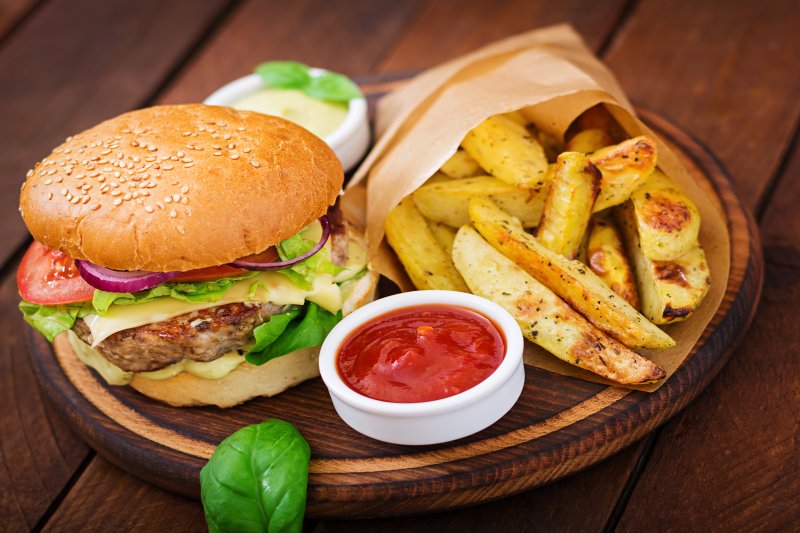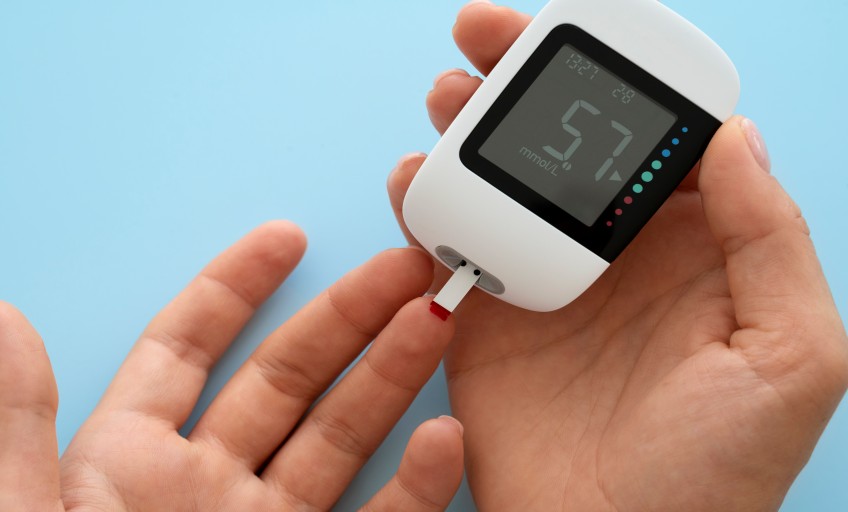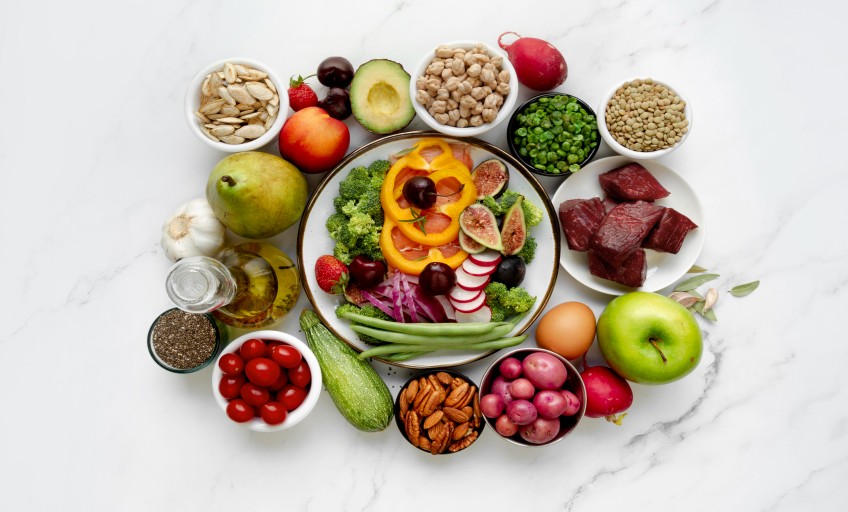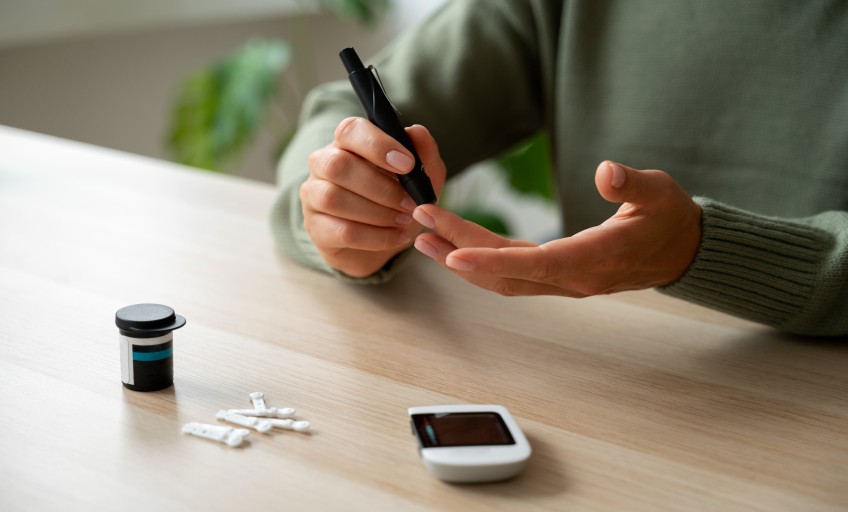Key Takeaways
- A blood sugar spike is when blood sugar levels remain consistently high.
- Carb-dense meals, stress, and medical conditions can cause it.
- Its symptoms include headaches, weakness, dry mouth, shakiness, anxiety and nervousness.
- Have a balanced diet, exercise regularly, manage stress and track your blood sugar levels to prevent it.
Eating sugar-dense foods like candies and cookies or drinking sugary fluids like soda and juices can cause a sudden spike in blood sugar levels. Thus, it becomes necessary to be cautious. If you have diabetes, you need to monitor your blood sugar levels to avoid spikes. If your blood sugar is excessively or consistently high, you may experience thirst, blurred vision, and headaches.
What you need to know:
- What is a blood sugar spike?
- Common causes of blood sugar spikes
- The symptoms of a blood sugar spike
- Preventing blood sugar spikes
What is a blood sugar spike?
Glucose, a simple sugar that comes from food, serves as the body’s main source of energy. The pancreas secretes a hormone called insulin that makes cells more responsive to glucose. The cells then draw glucose from the blood. If you have diabetes, either the pancreas does not produce insulin or the cells develop a resistance to this hormone. As a result, the glucose remains in the blood, keeping blood sugar levels consistently high, which is called a blood sugar spike.
Common causes of blood sugar spikes
Here are some common blood sugar spike causes:
Carbohydrate-heavy meals and snacks

Foods high in sugar or carbohydrates are more likely to raise blood sugar levels than other foods. These include:
- Sugar-dense foods like cookies, cakes, and candies
- Other processed foods like white rice, bread, and pasta
- Breakfast cereals with added sugars
- Fried and fast food items like burgers, pizza, and doughnuts
Stress and emotional factors
When your body is under great stress, it produces hormones that raise glucose levels and reduce insulin efficacy. As a result, more glucose stays in the blood. It is essential for people with diabetes to find a way to decrease stress levels.
Medical conditions
Medical conditions that can cause a blood sugar spike include:
- Both type 1 and type 2 diabetes
- Cushing syndrome, a disorder that occurs when the body has too much cortisol over a long time period
- Acromegaly, a disorder that develops when your pituitary gland produces too much growth hormone during adulthood
- Hypothyroidism, a condition that happens when your thyroid gland doesn’t make enough thyroid hormones to meet your body’s needs
- Some HIV treatments, steroids, and certain blood pressure medicines
- Chronic stress, infections or illnesses
The symptoms of a blood sugar spike
A blood sugar spike does not cause symptoms until blood glucose reaches an excessive or consistently high level. Some early blood sugar spike symptoms are:
Physical symptoms
The early physical blood sugar spike symptoms include:
- Thirst
- Frequent urination
- Blurred vision
- Headache
Some severe physical blood sugar spike symptoms are:
- Fruity-smelling breath, a sign of ketoacidosis, a life-threatening condition that occurs when the body starts breaking down fat too fast
- Shortness of breath
- Weakness
- Nausea and vomiting
- Dry mouth and skin, Difficulty concentrating, headaches
Shakiness
When the body overcorrects to a blood sugar spike, it can cause a brief period of low blood sugar, known as reactive hypoglycemia. Symptoms include shakiness, lightheadedness, irritability, anxiety, and palpitations.
Sweating
Extreme fluctuations in blood sugar resulting from a blood sugar spike can also affect perspiration, leading to hyperhidrosis or excessive sweating.
Dizziness
Dizziness, also a symptom of a blood sugar spike, can feel like your head is spinning, even when you are standing still. You may feel lightheaded or like you might faint.
Mental symptoms
Blood sugar spike mental symptoms include:
- Anger or sadness
- Nervousness
- Brain fog that includes fatigue, irritability, confusion, memory loss, and difficulty concentrating
- Anxiety
- Mood swings
Preventing blood sugar spikes
Some blood sugar spike prevention tactics include:
Balanced diet and portion control
Follow a low glycemic index (GI) balanced diet with strict portions that can help reduce the amount of glucose in the body and the accompanying risk of spikes. The GI ranking indicates the extent to which carbohydrates in a given food will affect blood sugar levels. High-GI foods include popcorn and crackers. Low-GI foods include barley, corn, and sweet potatoes.
Regular physical activity

Regular exercise that is light to moderate in intensity uses up some of the excess blood glucose and brings down overall levels. Some exercises that can help include:
- Walking
- 60 minutes of light aerobic exercise or 20–30 minutes of moderate activity
- Moderate-intensity resistance exercise
Stress management techniques
Stress management techniques can help prevent blood sugar spikes by reducing the release of cortisol and other hormones that raise blood sugar levels. Try techniques like yoga, deep breathing, muscle relaxation, visualization and meditation for blood sugar spike prevention.
Monitoring blood sugar levels
Keep track of your blood sugar levels. Anyone experiencing a blood sugar spike should immediately monitor the levels. You should contact the doctor if the reading is above 180 milligrams per deciliter within 2 hours of eating. It may also help to record blood sugar levels in a journal and look for patterns.
If you have diabetes, you might experience blood sugar spikes right after eating. You can control these spikes with insulin, medicines, or through lifestyle modifications mentioned above. Prevent these blood sugar spikes from creating health complications. Follow your doctor’s advice and lead a healthy lifestyle.
Stay tuned to the Activ Living Community. Keep up to date with the latest health tips and trends through expert videos, podcasts, articles, and much more on nutrition, fitness, mindfulness, and lifestyle conditions like Asthma, Blood Pressure, Cholesterol, and Diabetes. Activ Living ke saath sahi sehat ki shuruat ABHI karo.
You may also be interested in the following blogs:
- 6 Common Myths About Diabetes And Blood Sugar Levels You Need To Know
- Do Bananas Affect The Blood Sugar Levels Of People With Diabetes?
Popular Searches
How to lower blood pressure | Fruits good for liver | Unhealthy foods | Ragi Benefits | Basal Metabolic Rate | Acupressure points for High Blood Pressure | Ayurvedic medicine for blood pressure | How to control cholesterol at home | Homeopathy for Asthma | Biological Age | Home remedies for TB | Natural beta blockers | Negative effects of internet | Types of walking | Blood pressure calculator | Blood sugar calculator | BMI Calculator





 1800-270-7000
1800-270-7000









Spot on with this write-up. Thanks for the advice!
Thank you for another great article.
You’ve made some good points there.
Wonderful article!